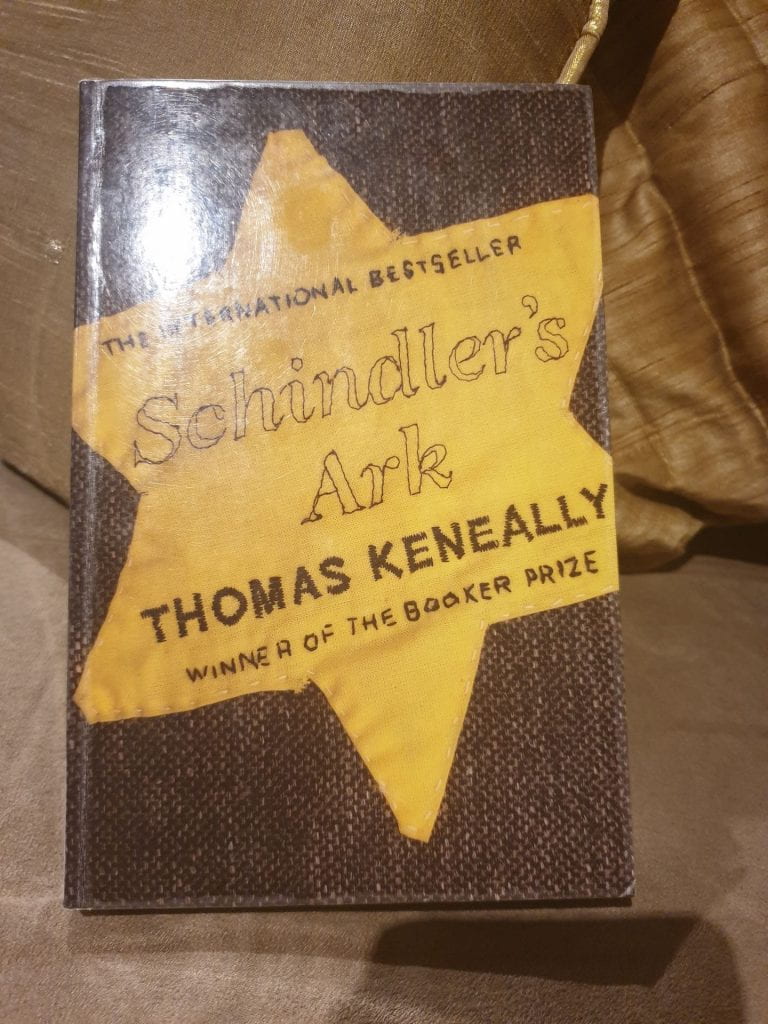Schindler’s Ark by Thomas Keneally was a very dry read. It was drier than the cheapest plonk at the pub during happy hour. Now before anyone starts collecting rocks to stone me, I would challenge them to read the book too and then comment.
I am not denying that the material in the book is powerful. I definitely acknowledge that the book is filled with names, places and intense facts. But it is not prose. Upon thinking this further, I recollect the subject of the book and wonder if there is a reason for that. If the author, in this case Thomas Keneally was aiming for an emotive piece, it would be a character lie. By all accounts, Oskar Schindler was a hard drinking and reckless businessman who cheated on his wife with regularity (Hurvitz & Karesh, 2016). He destroyed his family business, sought to cheat, lie and swindle his way back into a life of comfort. Quite frankly, by all tokens, this man was an immoral and wasteful character. Then Schindler went on to save almost 1300 Jews from the concentration camps during those dark days in Eastern Europe. This man, who by the standards of his time, and now; unworthy of attention; put his own life at risk to save others. His actions have been immortalised in a book, a major Spielberg movie production and the term Schindlerjuden or Schindler’s Jews, which is still used to refer to the descendents of those that were saved.
So when you consider all these facts, the dryness of Keneally’s “Schindler’s Ark” makes sense. It would be a lie if the book was anything other than prosaic. Instead, its matter of fact manner of describing the main character’s traits ensures that the reader does not view him with rose framed lenses. The reader is made fully aware of Oskar’s failings as a man and a husband. It is in viewing these failings that Schindler’s true heroism is seen. The plain language allows the reader to envision the fear hiding between the stalwart words. Conversely, the plain language also allows readers with little imagination to read the book without being overwhelmed.
“Schindler’s Ark” was a very dry read for someone who is a lover of prose. As an avid reader of fiction, I found this novel to be more informative than anything else. I also found it heartbreaking, just like the sadness I feel when the happy hour wine is just awful. But whilst this book was a struggle for me, it would be ideal for reluctant teens who struggle with engaging with fictitious stories. The language, style and format of the book resemble information books and thus may satisfy their need for ‘facts’. But whilst the Guardian review suggests this book as appropriate for 8-12 year old children, I would probably restrict it to students over 14-15 years old. This would then correlate well with the year 10 HASS’s World War 2 and Holocaust unit especially the ACDSEH025 elaboration. It would also work well in the Biographies and memoirs unit in Year 10 English.
REFERENCES:
Alannahbee, (2013). Schindler’s Ark by Thomas Keneally – review. The Guardian. Retrieved 16th March, 2020 from https://www.theguardian.com/childrens-books-site/2013/sep/25/review-schindler-s-ark-by-thomas-keneally
Axelrod, A. (2013). Schindler, Oskar. In Encyclopedia of World War II, vol. 2. New York: Facts On File. Retrieved March 16, 2020, from online.infobase.com/Auth/Index?aid=19165&itemid=WE53&articleId=265017.
Hurvitz, M. M., & Karesh, S. E. (2016). Schindler, Oskar. In Encyclopedia of Judaism, Second Edition. New York: Facts On File. Retrieved March 16, 2020, from online.infobase.com/Auth/Index?aid=19165&itemid=WE53&articleId=263928.

